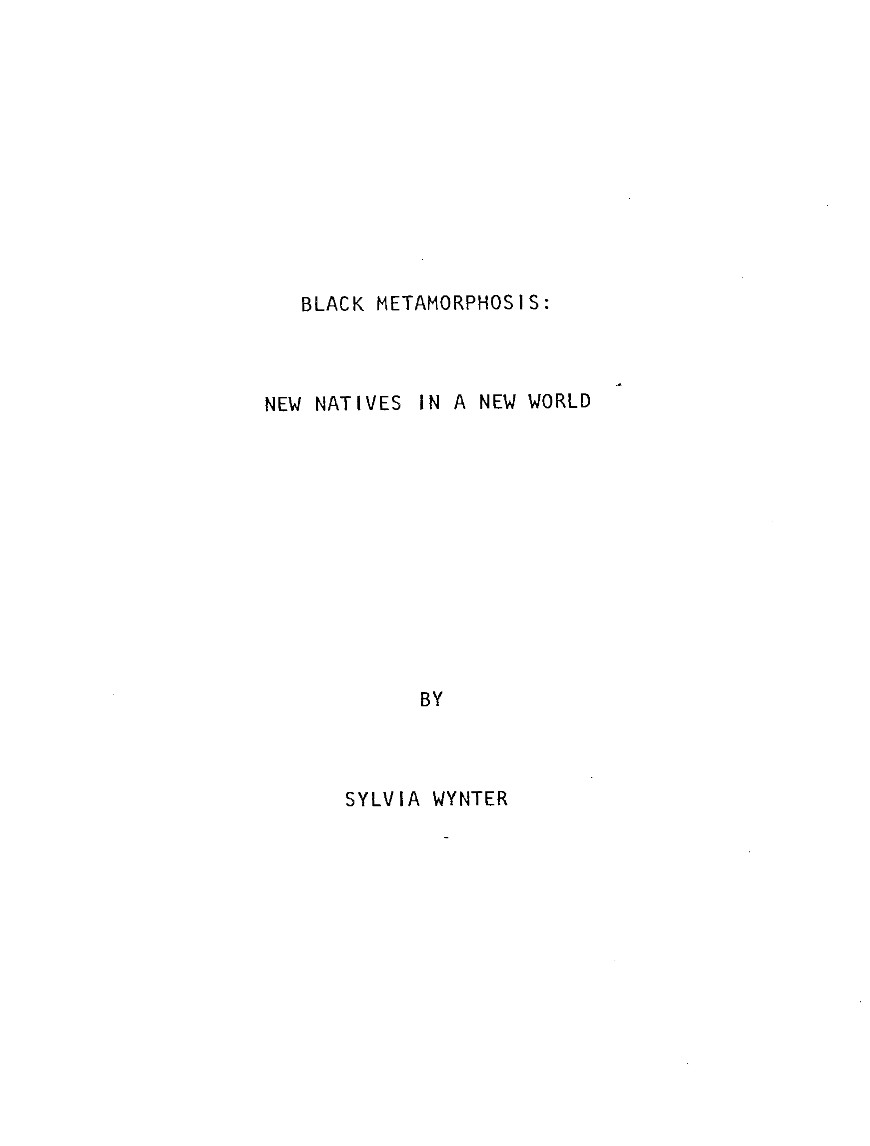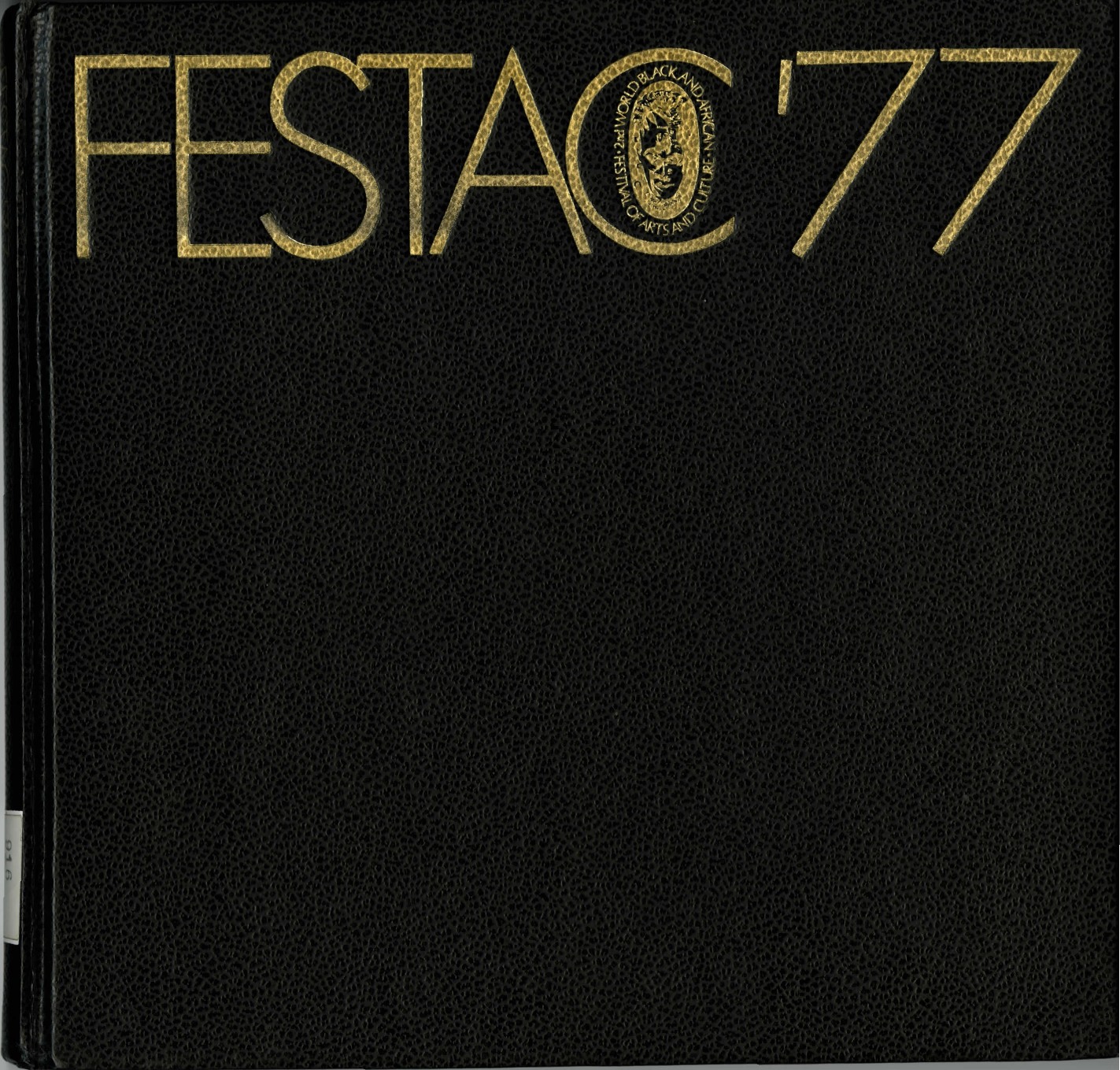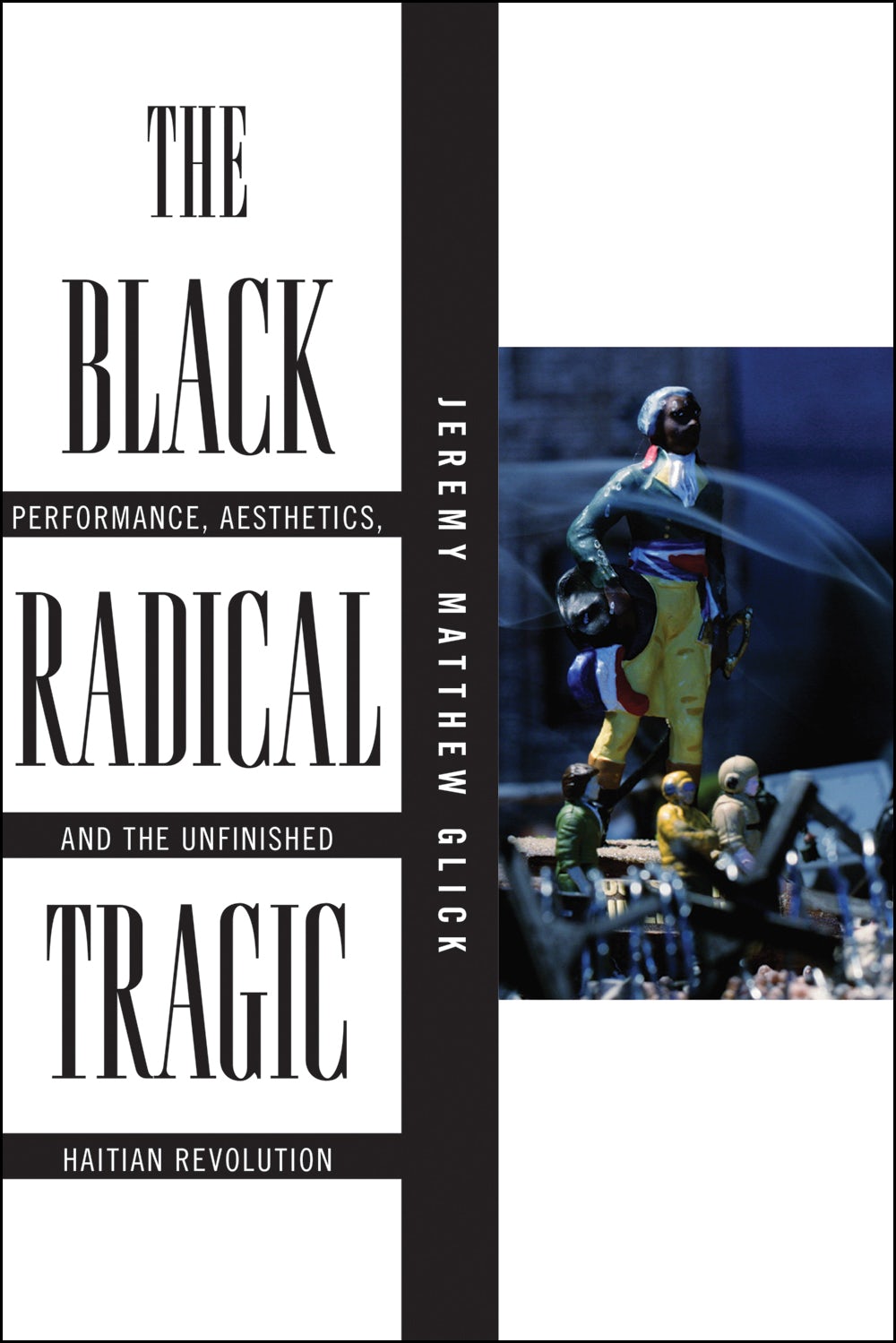Sylvia Wynter: Black Metamorphosis: New Natives in a New World [1970s]
Filed under manuscript | Tags: · black people, body, caribbean, colonialism, critique, human, humanism, politics, resistance, slavery, theory

“Black Metamorphosis: New Natives in a New World is an unpublished manuscript written by Sylvia Wynter. The work is a seminal piece in Black Studies and uses diverse fields to explain Black experiences and presence in the Americas.
Throughout the 1970s and early 1980s, Wynter worked with the Center for Afro-American Studies (CAAS) at the University of California, Los Angeles (UCLA) to complete the project which was to be published by the Institute of the Black World. The manuscript presents early iterations of Wynter’s Theory of the Human and explores how Black experiences are essential to understanding the history of the New World.”
The only part of this manuscript that has been published is Wynter’s 1979 essay “Sambos and Minstrels”, though excerpts of and allusions to many of the other texts she wrote in the 1970s can be found in the manuscript, particularly “Jonkonnu in Jamaica” (1970), “Novel and History” (1971), “Ethno or Socio Poetics” (1976), “The Politics of Black Culture” (1977), and “In Quest of Matthew Bondman” (1981). … In the final 935-page manuscript, the page numbers break at page 251 and resume with page 370. The 120 missing pages correspond exactly to the number of pages in a series of descriptions of revolts by enslaved persons in Jamaica, and it appears that they were meant to be inserted at this point in the text.” (Kamugisha 2016)
Manuscript, written throughout the 1970s
[935] pages (252-369 missing)
Commentary and analysis: Derrick White (C.L.R. James Journal, 2010), Aaron Kamugisha, Demetrius L. Eudell, Greg Thomas, Katherine McKittrick, Tonya Haynes, Nijah Cunningham (Small Axe, 2016).
PDF (21 MB)
Comment (0)FESTAC ’77 (1977)
Filed under book | Tags: · africa, art, black people, caribbean, diaspora, film, literature, music, négritude, pan-africanism, poetry

“Festac ’77, also known as the Second World Black and African Festival of Arts and Culture (the first was in Dakar, 1966), was a major international festival held in Lagos, Nigeria, from 15 January 1977 to 12 February 1977. The month-long event celebrated African culture and showcased to the world African music, fine art, literature, drama, dance and religion. About 16,000 participants, representing 56 African nations and countries of the African Diaspora, performed at the event.
Artists who performed at the festival included Stevie Wonder from United States, Gilberto Gil from Brazil, Bembeya Jazz National from Guinea, Mighty Sparrow from Trinidad and Tobago, Les Ballets Africains, South African Miriam Makeba, and Franco Luambo Makiadi. At the time it was held, it was the largest pan-African gathering to ever take place.” (Wikipedia)
Publisher Africa Journal Limited, London, and International Festival Committee, Lagos, 1977
152 pages
via Abdul Alkalimat
Film documentary (UNESCO, 1977, 26 MB)
Commentary: Arthur Monroe (Black Scholar, 1977), Iris Kay (African Arts, 1977), J. Southern (Black Perspective in Music, 1977), Moyibi Amoda (book-length evaluation, 1978, 80 MB).
PDF (134 MB)
Related documents:
General Programme (25 MB)
General Colloquium Programme (7 MB)
Visitors Guide to the Festival (2 MB)
Spotlight (2 MB)
Additional documentation (ed. Abdul Alkalimat)
Jeremy Matthew Glick: The Black Radical Tragic: Performance, Aesthetics, and the Unfinished Haitian Revolution (2016)
Filed under book | Tags: · aesthetics, black people, caribbean, history of literature, performance, revolution, tragedy

“As the first successful revolution emanating from a slave rebellion, the Haitian Revolution remains an inspired site of investigation for a remarkable range of artists and activist-intellectuals in the African Diaspora.
In The Black Radical Tragic, Jeremy Matthew Glick examines twentieth-century performances engaging the revolution as laboratories for political thinking. Asking readers to consider the revolution less a fixed event than an ongoing and open-ended history resonating across the work of Atlantic world intellectuals, Glick argues that these writers use the Haitian Revolution as a watershed to chart their own radical political paths, animating, enriching, and framing their artistic and scholarly projects. Spanning the disciplines of literature, philosophy, and political thought, The Black Radical Tragic explores work from Lorraine Hansberry, Sergei Eisenstein, Edouard Glissant, Malcolm X, and others, ultimately enacting a speculative encounter between Bertolt Brecht and C.L.R. James to reconsider the relationship between tragedy and revolution. In its grand refusal to forget, The Black Radical Tragic demonstrates how the Haitian Revolution has influenced the ideas of freedom and self-determination that have propelled Black radical struggles throughout the modern era.”
Publisher New York University Press, New York, 2016
America and the Long 19th Century series
ISBN 9781479844425, 147984442X
xiii+266 pages
Reviews: Slavoj Žižek (LA Review of Books, 2016), Marina Sofia Magloire (Women & Performance, 2017), Paige A. McGinley (TDR, 2017).
Comment (0)
